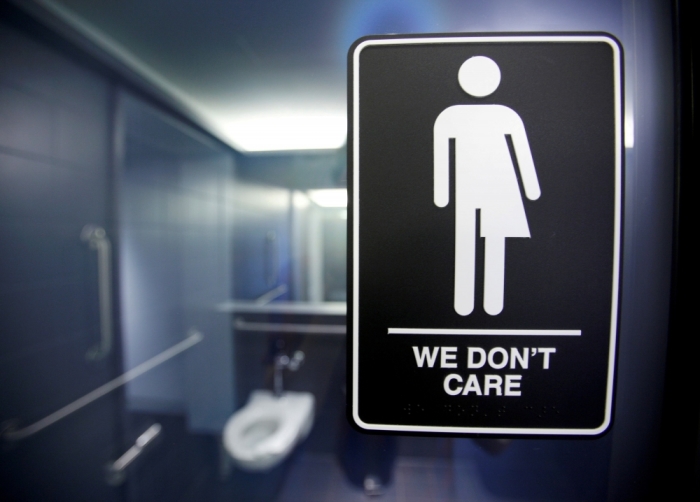NYC Teachers Must Refer to Transgender Students by Preferred Pronouns, Memo Says

The New York City Department of Education has instructed teachers and faculty to address transgender students by their preferred pronouns — whether that be "he," "she," "they" or "ze."
The directive was issued on Wednesday and came in the form of a 10-page memo detailing how schools and faculty should treat transgender students. The memo states that "all students have the right to have their gender identity recognized and respected by their school community."
"Every student is entitled to be addressed by the name and pronoun that corresponds to the student's gender identity that is consistently asserted at school," the guidance reads. "Students are not required to obtain parental consent or a court ordered name and/or gender change as a prerequisite to being addressed by the name and pronoun that corresponds to their gender identity."
"Teachers and other school staff should be made aware of and honor a student's request to be referred to by the name and gender that corresponds to their gender identity," the memo continues. "It is important to note that for students who are gender non-conforming or who do not prescribe to the gender binary, they may prefer gender neutral pronouns such as they, ze, or other pronouns."
The memo also explains that schools should use a student's preferred name and gender in records and documents that are "not permanent pupil personnel records," such as guidance logs, anecdotal records, yearbooks, graduation programs.
"Student IDs should be issued in the name that reflects a student's gender identity that is preferred and consistently asserted at school," the memo asserts.
Although the memo explains that parental consent is not needed for the school to accommodate the child's preferred gender, it advises administrators to "meet with the parents and student to discuss the school's role in supporting the student's transition, make resources available to parents who have questions or concerns, work with the family to prepare for a formal gender transition at school and put in place measures for supporting the child and creating a sensitive supportive environment at school."
"This meeting should include, but not be limited to, discussion of the timing of the transition, planning responses to questions from school staff and students, and changing the student's information in school records," the memo explains.
However, the memo warns administrators to be cautious about talking to parents because many transgender children do not want their parents to know about their gender identity and nonconformity experience. In cases like those, "the school principal or their designee should confer with their Senior Field Counsel about how to proceed."
According to the memo, the only way for a transgender student to change the name on his or her permanent record is by going through the process of a legal name change, which requires a "court order or birth certificate demonstrating the student's new name."
"For a legal change of gender, the student must provide a birth certificate indicating the student's legal gender, or a valid passport indicating the student's legal gender," the guidance reads.
Guidelines for other issues that transgender students might face in school are also outlined.
The memo states that transgender students must be provided access to restrooms, locker rooms and changing rooms that are "consistent with their gender identity consistently asserted at school."
It also leaves open the door for transgender students to go back and forth on their perceived gender.
"A student whose gender identity is fluid should work with their school to facilitate restroom and locker room access that affirms their identity," the education department says in its guidelines.
The document also tells schools to allow transgender students to have the same opportunity to participate in sports teams, adding that "students must be permitted to participate in physical education and intramural sports in accordance with the student's gender identity that is consistently asserted at school."
"Participation in competitive athletic activities and contact sports will be resolved on a case-by-case basis," it asserts.
Regarding how school nurses should handle transgender students, the guidelines state that nurses are required under law to "maintain patient records that contain all pertinent information which identifies a patient and that accurately document clinical information relating to their patients, and to keep such records confidential."
The memo comes after the Departments of Justice and Education sent a guidance letter to public school districts last week, telling them that the Donald Trump administration has rescinded a guidance issued by the administration of former President Barack Obama last year telling schools to allow transgender students to use bathrooms and locker rooms consistent with their gender identity.
"These updates provide additional clarity and strengthen the guidance that's shared with school communities, and build on our work to ensure all students, including transgender and gender nonconforming students, are provided with a safe, supportive and inclusive learning environment," New York City Schools Chancellor Carmen Fariña said in a statement to The Christian Post on Thursday.
The Trump administration guidance effectively lets states and local school districts determine their own bathroom policies. New York City Schools has had policies in place since 2014 that have allowed transgender students to use bathrooms and locker rooms consistent with their gender identity.





























